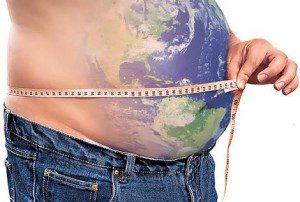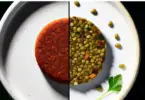By Tracy Hay
Guest Writer for Wake Up World.
Recently after having completed a Permaculture Design Course I decided that I if I were to learn more and really ‘Be the change, that I wish to see in the World’ then the first step would be to find somewhere to live with some garden space so that I could begin to grow my own food. I found the place, with a beautiful garden and set about thinking of making my first ever gardening plot. I have never gardened or grown my own vegetables/food before, so this was a huge challenge in itself. There seemed to be so much to learn: types of soil, prevailing winds, local climate, orientation of the garden, not to mention when to plant things, what conditions each plant liked, companion planting (planting one crop with others which support each other and deal with infestations of damaging insects), seasons, caring for the garden (without using pesticides), preparing the soil, choosing what to grow.. The list is endless and the books I read were often contradictory. This would be enough to put many people off starting to grow their own food I have to admit. All this information kind of swamped me and made me feel more than incompetent and ignorant, but one of the things that kept me going was my desire to be more self-reliant and know where my food was coming from, whilst taking the pressure off other countries to supply me with my nutritional needs and again part of my wish to ‘walk the talk’. But one question that has persisted in my head since starting down this road is ‘what is enough?’
[pro_ad_display_adzone id=”110028″]
The question of how much is enough cropped up first in relation to just how many seeds of each plant I should germinate. How many fruits came from each seed? How much space would each fully grown plant use up? When would the fruits be ripe and so how would I store them if they were all ready at the same time? As a novice to all of this my first instinct was to just plant as many seeds as I had, of everything, and have so much food that I could feed myself and the village, all being well, and me being optimistic here! Not a bad idea in itself, but realistically I don’t have the space nor would it be a good way to start out. I figured that it was better to start with ‘Small & slow solutions’ given that this is one of the guiding principles of Permaculture. This way I could observe the growing of my plants, establish what worked well in this climate, become more experienced in growing my own food, and hopefully learn about what is enough in terms of yields from each plant.
However, the real question for me of ‘what is enough?’ is something which is of much greater consequence and importance. Metaphysically speaking there will be many arguments of how much food we need to consume to stay healthy and what different types of food each individual needs to consume on a regular basis. And probably according to each country, depending on its wealth there will be ‘guidelines’ in appropriate calorie intake, levels of protein, carbohydrates, vitamins, fat content etc.
Here in the UK it is recommended that we eat our ‘five a day’, that is five pieces of fruit or vegetable each day to keep us healthy. With current news leaked that soon it will be increased to seven!! The supermarkets now sell an array of individually boxed portions of dried fruits, nuts and fresh fruit snacks which constitute one of our prescribed ‘five a day’. There is a huge marketing drive to convince us of our need for the five a day, and of course there is a whole system of benefits for the supermarkets and the governments in convincing us of this, and I have observed that most people will dutifully ‘comply’ with what they are told for fear of being shamed if they are discovered for ‘disobeying’ the rules (I don’t know how the ‘food police’ work or where they are but they seem to present a real fear in people’s lives). Of course one could ask where these ‘rules’ came from in the first place, but that is another matter.
So whilst there is a drive here to impress upon the population that we must eat our ‘five a day’ there is a pressure for some farmer, somewhere else, usually in some far off place to produce these five pieces of fruit or vegetables, to package them individually, to wrap them up in little plastic packets and to get them transported out, ship shape for us consumers in the UK.
Other countries have similar guidelines; “ Go for 2 and 5″ is the equivalent campaign in Australia, The 5 am Tag (5 a Day) program operates in Germany, 5 A Day is also known as 5+ A Day in New Zealand, The 5 a Day program in the United States has become Fruits & Veggies – More Matters and The French PNNS (Programme national nutrition santé, National nutrition health programme) recommends at least 5 portions of fruit and/or vegetables per day, these details are all according to Wikipedia. Interestingly there are no guidelines or campaigns listed for the more economically challenged countries. Does this mean that as humans we have different needs based on where we hailed from? Or does it simply come down to the wealth of a nation and its consumer drive towards economic growth? After all, the more we consume, the more we spend, the more money goes around, the more demand on the farmers and usually all of this with little regard for the consequences.
And there are many consequences, much of which is not visible, if we chose not to look beyond our own fridge or supermarket supply and our governments ‘guidelines’. Here in the UK, which is one of a few select dominant cultures, (in my opinion) we are literally ‘demanding’ that somebody, somewhere, supply us with our minimum of five a day.
I wonder what guidelines there are in countries where economic growth may be the last thing on the people’s minds? In the very same countries where the workers are producing the vast majority of food that is being shipped out to the wealthier countries (we need our five a day!!). The countries where people are living off one bowl of rice a day, if they are lucky. These same countries where local farmers are being forced to go and find work in large industrial cities, due to being squeezed out of the ‘market’ by large commercial growers. Are there Government recommendations in these countries as to how much their citizens need to eat per day to remain healthy while they toil to produce food for the more wealthy countries? I suspect not. This is a classic case of ‘different strokes for different folks’ in action.
What is enough? Have we asked ourselves that question recently, or do we just go blindly by what we are ‘told’ or ‘sold’? Do we think it is fair that while we are consuming some five (or however many) pieces of fruit or vegetables per day that some people are lucky to have one meal a day? Have we lost all sense of what is enough, and even how there could be equal ‘distribution’ of the food that is presently being grown in our world? How can we redress the balance?
One of the things for sure that would ease the pressure is by starting to grow our own food, but that is not the only answer and it is also something that is often met with responses such as;
“I don’t have enough space, time, experience, skills, inclination” or,
“Why should I bother when there is already plenty food in our stores to feed more than enough” and sometimes the argument is
“But I cannot grow enough to feed me and my family on all the nutrients, vitamins and calories that we need” (so therefore I shall grow none, in some cases), another classic is,
“The food is so cheap in the shops; I couldn’t do it for less”
And then often people will jump quickly to philosophizing over the percentages of protein, fats etc that one needs in their daily diet to survive; highlighting their fear, and susceptibility to getting caught up in an academic mindset, even in the face of an unquestionable inequality of food distribution worldwide.
Then of course there are the defensive arguments towards reducing or changing our diets, and the fear and panic that arises when people feel that they may have to take full and real responsibility for feeding themselves and their family, not just in economic terms, which is scary enough, but because nowadays we just do not know how to even go about literally feeding ourselves, or what a seed represents in terms of enough or otherwise.
I would like to ask, who really knows, how many pieces of fruit we should consume daily, or how many calories are deemed to be the perfect intake per day, or what ratios of protein versus carbohydrates are the most beneficial to sustain our lives as healthy humans? Of course I shall not ask these questions as I would just come up against a barrage of scientific reasoning, of tried and tested ‘diets’, of medical or other theories, and of evidence to the contrary of any such theories, which shows that we must follow some kind of guidelines for us to thrive (even if it is at the cost of others) I would like to ask some of the above questions, but the answers are not enough. We need some real action if we are to shift the balance from consumer driven demands to real equality globally for all humanity, our health, mind and our planet.
What we can we do about this situation?
What I shall ask again is; how much is enough? And what can we do as individuals to help ease the demands on less economically wealthy countries? Those same countries that are at present providing a large percentage of our food, much of which ends up in the trash can.
What if as consumers we were to insist that there were laws or guidelines governing and stating that those who are growing or cultivating our foods also had to be provided, by fair means, their ‘five a day’? This would mean we demand less. Or standing up to the large corporations and making it clear that we don’t want or need an over abundance of food in our supermarkets, that gets thrown out at the end of the day. What actions can we take to make our voices heard? Which shops can we boycott in our demands for fairer treatment of all farmers and workers globally? How do we go about measuring by real means, what is enough for ourselves and our families? We can begin this by asking, what is fair in the existing system? When we think from our comfy chairs about what is enough, do we ever question why ‘five a day’ is good enough for us, but not for others? Have we considered that it is not charity and ONG’s that these countries need but equal rights to be able to eat the food that they grow and have the same demands as ourselves? And are we aware that in our demands for our daily bread we are creating and reinforcing the inequalities?
Maybe it is time to start thinking about what is enough (in all the senses, for all the people) and reducing our intake and demands. Of course we can also start shopping locally and supporting local food growers (which automatically takes the pressure off some of the ‘distant’ places providing us with our needs, although shifts the pressure elsewhere if we continue with the quantities of food which we presently demand) We could be eating fewer but healthier foods or learning and being fully open to growing at least some of our own food, with the ultimate aim of providing more and more for ourselves, at least within our local communities. Not everyone will want to grow their own food or get their hands in the soil, and some people may not be physically capable of doing the growing themselves, but this need not be a problem as there are other ways in which we can support farmers/growers (both in the places we live and in other countries) If we could move more towards a gift mentality or economy and fully embrace being ‘conscious consumers’ we will find many ways to make changes. If growing food is not your thing (although I would highly recommend it) then think of what gifts you could offer to support a fairer system, we all have gifts to give e.g. book-keeping skills, working a stall at a local food market, giving our time freely, allowing small producers free advertising on our web-pages or blogs, donating some money for seeds to a small project, making posters to promote events, all of this helps towards ‘voting with our feet’.
Being guided by our awareness we begin to make a more profound impact, fully realising how each action taken, has a ripple effect on our food supplies, our land, the future of our planet and its inhabitants, and the part we play in the inequality and injustice that is happening in many parts. By taking full responsibility for our eating habits and needs (and not doing what we are told by Governments or otherwise) we could further reinforce our solidarity with our fellow humans in all parts of the world. We could move towards real change in terms of our ethics, beliefs, and actions becoming saner & healthier role models and ambassadors for future generations and for the people of all parts of the globe. We can help and support equal distribution and access to ‘enough’.
“Apply self regulation and accept feedback” – the sins of the fathers are visited on the children into the seventh generation – Principle 4 taken from Permaculture, Principles and Pathways Beyond Sustainability – David Holmgren
Article Sources
http://en.wikipedia.org/wiki/5_A_Day
http://permaculture.org.au/what-is-permaculture/
About the Author
A life-long learner/student at the university of life, passionate about food, striving towards ‘sharing a living’, Tracey Hay is a believer in a new gift economy and our capacity for change by finding our gifts, remembering and relearning about nature through Permaculture practice and is an activist for equal rights. Tracey’s blog can be found here
[pro_ad_display_adzone id=”110027″]







